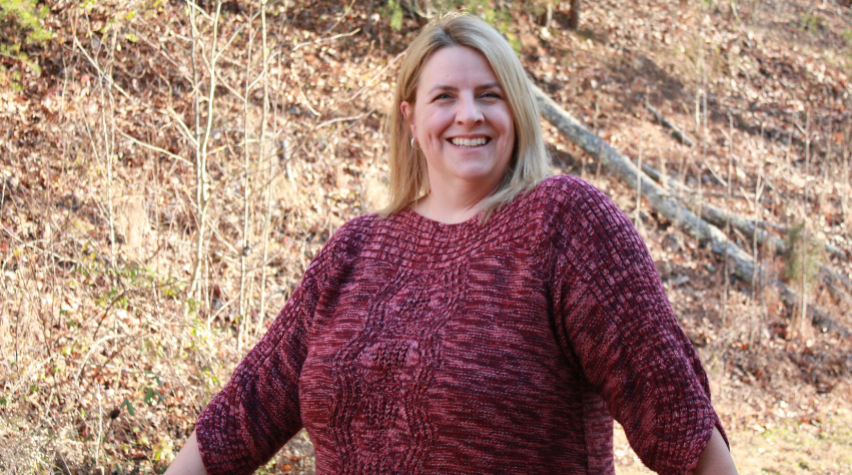
Welcome to the latest in a series of AIChE blog posts profiling process engineers, a diverse group of professionals spanning multiple industries and regions. In this series, we profile process engineers who work in fields as diverse as petrochemicals, pharma, bulk chemicals, food, and any process-intensive industry.
Are you a member and process engineer interested in being profiled? We'd love to hear from you via this volunteer opportunity. Please also check out our online discussion group specifically for process engineers. You can find out about these initiatives and join our efforts by visiting https://www.aiche.org/processengineering.
This month, we introduce you to Janet Baumann, a principal engineer at Eastman Chemical Company. She discusses her love for engineering, challenges in her role, and the importance of her work.
Tell us a bit about your work as a process engineer.
As an engineer, I have been fortunate enough to work in a wide range of positions and industries. After graduating college, I worked in titanium dioxide application testing for Kerr-McGee Chemical. In this position, I managed laboratory technicians, developed meaningful tests, and ensured global consistency. I enjoyed the challenge of learning and scaling-down our customers’ processes.
The insight I gained as a manager has severed me well my entire career. However, it was always my desire to spend more time in plants. I joined US AVESTOR, a Kerr-McGee / Hydro-Quebec joint venture startup, that made secondary batteries to back up telecom infrastructure. Working for a startup company was an amazing opportunity for a young engineer to develop a diverse skill set. I helped design a new site, piloted cathode materials, and developed safety and environmental programs for the US operations. I also spent a year in sales and technical service expanding my expertise with external customers.
What I love about engineering is that we can have such big impact. I work on projects to develop the products that fundamentally and materially improve people’s lives.
After AVESTOR, I honed my operations abilities as a process engineer in specialty boron chemicals with Tronox (formerly Kerr-McGee Chemical now Borman Specialty Materials). In this position, I was fortunate enough to work on the qualification and startup of new processes. I developed and nurtured close relationships with my operators, facilitating improvement ideation and enabling efficient implementation.
Currently, I am part of Eastman Chemical Company, which manufactures a wide range of specialty materials. My division is focused on streamlining the scale-up process. To support this focus, I ideate and evaluate separation methods, enabling the development of new products and new processes as well as supporting key, existing assets. I am also lucky enough to share my learning and experience with our amazing young engineers. I am grateful for the diverse projects in my division which have grown both my technical and soft skills.
Why did you become a process engineer?
I was initially drawn to engineering for its creativity. Further into my education, I was amazed by the variety of careers practiced by engineering graduates. An engineering education teaches you problem solving and independent learning, which is a great launching pad for a wide variety of careers.
I have always been a jack of all trades, which allows me to be very adaptable and create a unique perspective. However, when it came time to select a career, I found it difficult to narrow my focus, so I was excited to join a profession with such breadth.
What are some of the biggest challenges you face in your role as a process engineer?
Engineers must become more and more strategic to ensure they are providing the most value add. Organizations are getting flatter and more matrixed; at the same time, the development timeline continues to accelerate. In a culture where many of us have a never-ending to do list, it’s easy to fall into a “heads down” approach. However, it’s critical to make time to think and to understand the why; this will allow you to see trends, ask questions, and communicate effectively.
How is your work as a process engineer critical to your particular job assignment or industry?
Process engineers are the communication hub on most development projects. Like many process engineers, I have had a variety of assignments, giving me exposure to design, operations, marketing, sales, environmental, and safety. Effective communication depends on being able to understand the perspectives of your functional partners and external customers. Process engineering provides a global perspective, making process engineers ideal for understanding the bigger picture and facilitating team communications.
What do you think is most important about what you do as a process engineer?
What I love about engineering is that we can have such big impact. I work on projects to develop the products that fundamentally and materially improve people’s lives. At the same time, I am developing processes that protect, and even improve the environment, all the while always guarding the safety of myself, my colleagues, and my community.
Connect with Janet on AIChE Engage
Join the Community of Process Engineers
The Community of Process Engineers is brought to you by Scott & Karen Love. Their support enables the AIChE Foundation to advance process engineers at every stage of their career allowing them to Do a World of Good.
AIChE Foundation – Doing a World of Good Campaign



